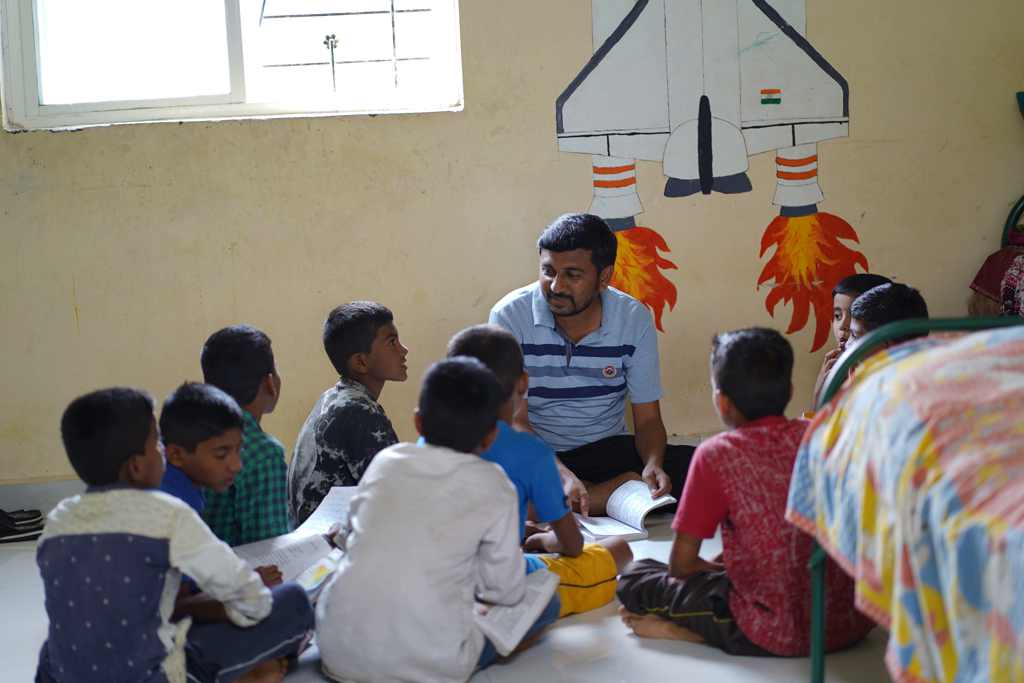When software engineer Ashok Deshmane, a farmer’s son from drought-hit Marathwada’sParbhani, landed a job at Wipro it was like a dream come true. The Parbhani local moved to Pune with his parents who had worked their whole lives as farmers. And while Ashok’s family was pleased that their son was earning well and had a great job, the 31-year-old felt a void and wanted to do something where he could give back to society. Reminiscing about the difficulties his parents went through just for the sake of survival made him think of all the others who were still suffering like they once did in drought-hit Marathwada and that’s where Ashok found his true calling.
Having grown up in a drought-hit district, Ashok did everything he could in hopes of getting a good degree so he could get a job that would help him out of the situation. He did odd jobs to support his education. He completed his Masters in Computer Science from Dnyanopasak College in Parbhani and then moved to Hyderabad for better education in computers and managed to get multiple certifications from recognized institutions.

Ashok’s hard work paid off and he got hired by Wipro Pune in 2012 and he took his parents with him. Ashok then joined Mphasis for better pay, he was happy and his success made his family happy too. Ashok shares, “My parents were very happy to see me doing great and our standard of living improved tremendously. But I started to feel guilty that I was being selfish, I worked hard to get better education which led me to have a better life and successful career. However, my success was limited to me and I was not giving back to society.”
Ashok felt especially guilty because his village was going through an extreme drought and several farmers were forced to move to cities for survival, many sending their children off too, irrespective of age or education. Many even died by suicide, this left Ashok heartbroken and he decided to help the children of farmers get better quality of education so they could also get out of their difficult financial situations as he had. But Ashok did not let his emotions overtake him and he started by teaching the children during the daytime while he continued his work during the night shift. Apart from teaching them what they were studying in schools, he also teaches them communication skills, reading skills, confidence-building exercises, and much more. He started with 15 students giving them a place to stay, food, and education – he calls them residential students. “I used to sleep only for three-four hours in a day, and around 10% of my salary would go into ration and other necessities for my residential students.” Ashok’s mother would cook food for the children and look after them. Things took off in 2015 when Ashok started a non-profit organisation called Snehwan to run his teaching projects.
However, this hectic lifestyle took a toll on Ashok and he wanted to commit to his project completely, so in 2016 he left his job – where he was earning around Rs 4 lakh yearly – and started to focus on his passion for providing quality education to farmers’ children. Now, he has 50 residential students who come from farming families. Ashok provides these children with those skills that an academic education doesn’t like helping build their confidence, improve their decision-making, communication, and comprehensive reading skills while also providing them food, shelter, and clothing. He also gets the children engaged in painting, being competent with computers, public speaking, developing reading habits, and much more.
Snehwan has also taken complete educational responsibility for 130 girls belonging to the Nandi Samaj and Adivasi Samaj. These girls were forced collect garbage for a living. Along with quality education, all girls are also trained in the traditional dance form of Bharat Natyam. Through the Dnyanchatra project, it has undertaken the complete educational rehabilitation of these children.
Dr. Ravindra Kulkarni saw Ashok’s noble work and donated around 2 acres of land that Ashok has turned into a dairy and organic farm, it also has a computer lab and library where thousands of books are available. He also teaches students about the production of dairy products, how organic farming works, and much more.

Ashok explains why he still teaches these children about farming saying, “For a farmers’ child, it is important to know the correct method of farming and also how to be self-sustainable. We are planning to have training sessions on various farming skills so that the students can learn entrepreneurship skills and do better. We are also planning to start working with machines like those for making tomato sauce, potato chips, and others that will help convert crops to more in-demand and profitable products. This will give the students ideas about entrepreneurship.”
Ashok’s NGO has been receiving financial and skills-based support from his friends, acquaintances, and many others who help him through money, rations, and time.
After years of hard work Ashok also found a life partner who had similar goals and hopes for the world like him, Archana, who now cooks food for the children and contributes to Snehwan.
Ashok happily concludes, “Although we have a long way to go, I can see the change in the children and their parents. The children have big aspirations for themselves, and their parents are more interested in sending them to the school rather than using them as helping hands like they used to.”
This story is submitted by Bilal Khan and edited by Alfea Shaikh.
If you like this story, share it and spread positivity. Tell us your views by writing in the comment box below. We read each one of them.
Looking For Startup Consultants ?
Call Pursho @ 0731-6725516
Telegram Group One Must Follow :
For Startups: https://t.me/daily_business_reads







